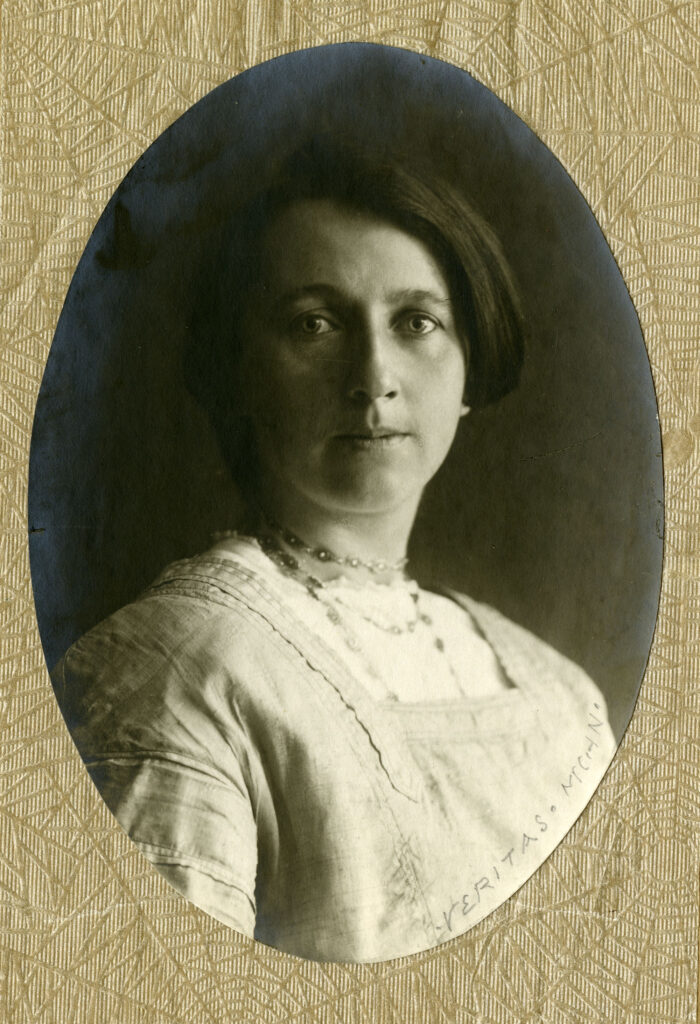Share Twitter Facebook Email Copy URL
Tireless for the cause of the workers
What a life Margarethe Faas-Hardegger had! Born in 1882 in Bern to a mother who worked as a midwife, and who passed on to Margarethe a taste for social engagement, she married August Faas at the age of 21 and had two daughters, Olga and Lisa. She abandoned her medical and law studies to tackle the root of society’s ills: poverty. Her trade union activity led to her to become the first ever female secretary of the Swiss Trade Union Confederation (the Union syndicale suisse or USS at the age of 23. She actively supported the most exploited female workers: those in the tobacco, food production and watchmaking industries, household servants, and domestic workers. Tirelessly she gave 367 lectures in three years, urging workers to join unions and taking part in international congresses. Her areas of action included the workers’ cause, fair wages, the creation of production cooperatives, sex education, contraception and abortion rights. She founded the newspaper Die Vorkämpferin,and then in 1907, L’Exploitée, of which she was the leading thinker and writer during its two good years of existence.

When, in 1907, the women workers at Vautier cigars in Yverdon were fired because they wanted to join a union, Margarethe organised their strike, the boycott of Vautier and the creation of a cigar cooperative (to support the strikers). A women’s strike! Not only was it a première – which would have inspired the 1918 general strike! – but it was also a success: the cigar workers were re-employed and unionised. It was direct action like this, however, that crystallised the conflict between Margarethe and the central committee, which led her to resign. She was twice sentenced to prison, for giving a false alibi to a revolutionary anarchist, and for complicity in abortion.
Margarethe always publicly advocated free love and the abolition of marriage. She separated from her husband at an early age and loved and lived with other men. Together with Hans Brunner, a carpenter and conscientious objector, and others, she founded communities, first in Zurich then in 1919 in Villino Graziella in Ticino, not far from the like-minded community of Monte Verità. Villino Graziella only lasted a few years, but Margarethe and Hans lived there for the rest of their lives. It was there that, with her daughter Olga, who had also become a midwife, she opened a maternity clinic for single mothers. During the Second World War, she fought against fascism, for the abolition of the army, for peace and against nuclear weapons. She stood up for refugees and exiles. From the 1950s onwards, she was involved in the struggle for women’s suffrage. She died in 1963.
It is not easy to gather the crumbs of information about Margarethe Faas-Hardegger’s dense life and try to follow the thread. One can only dream that one day her correspondence will turn up, or a diary, to know about her impressions in these battles fought with so much passion; to dream of being able to read of her feelings in the her twilight years, the things in which she took pride and her regrets, the advice she would have given to us younger ones, the ones who have depended on her commitments. In any case, once we discovered her and our batteries were recharged by the energy of all her life, we set out again to fight even harder, feeling grateful and determined.
Fanny Vaucher is a comic book author and illustrator based in Lausanne. She has published several books, alone or in collaboration; her projects favour anchoring in reality, covering pressing social issues and promoting knowledge transfer. She is the co-founder of the unisex comic book collective La bûche.



